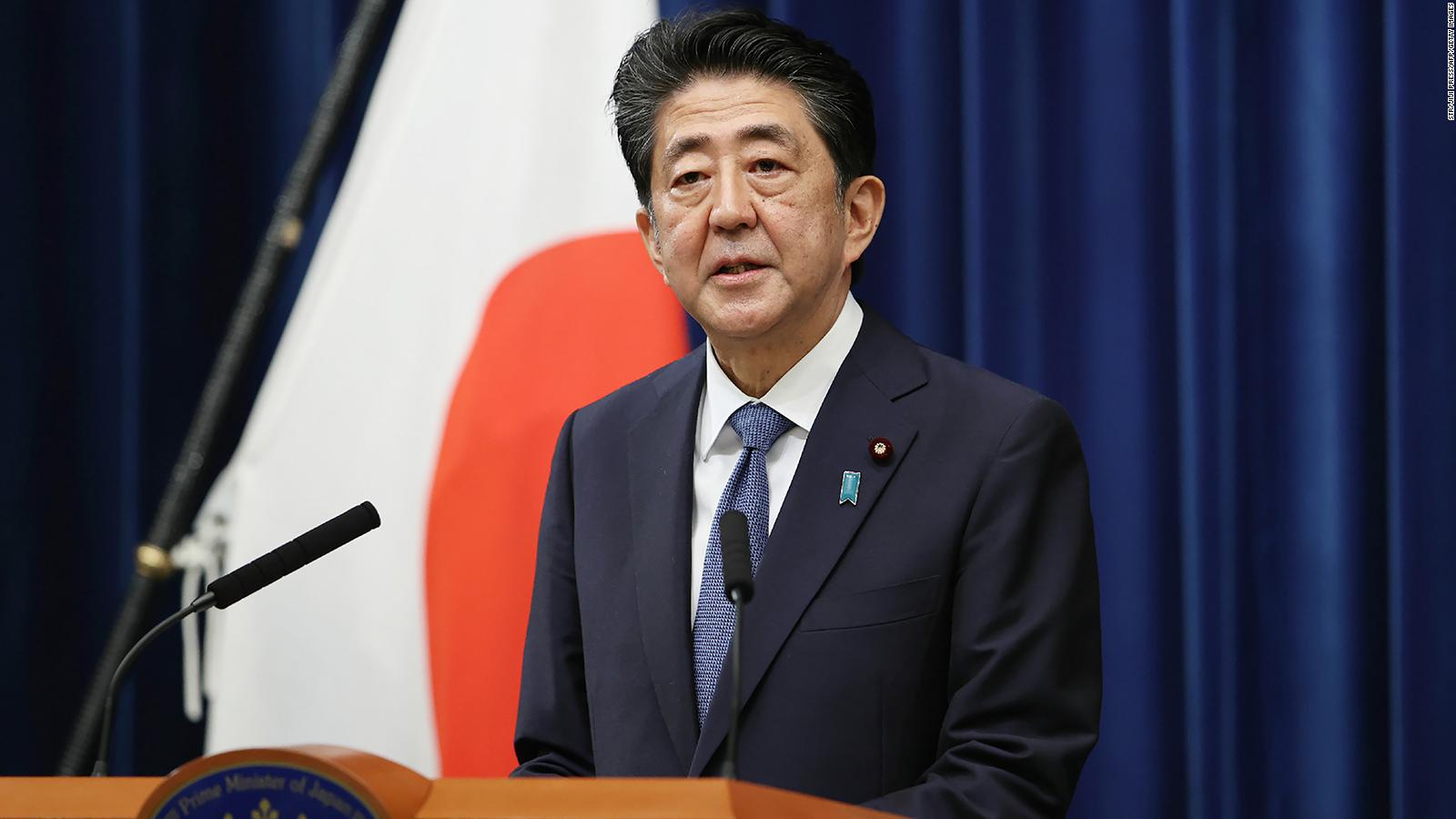The former Prime Minister of Japan, Shinzo Abe, died this Friday after being shot while giving a speech in the city of Nara, during a political event.
In August 2020, Abe announced his resignation citing health problems.
Here’s a look at the life of Japan’s longest serving leader in terms of consecutive days in office.
Personal
Date of Birth: September 21, 1954
Place of birth: Nagato, Japan (some sources say Tokyo)
Padre: Shintaro Abe, former General Secretary of the Liberal Democratic Party (LDP)
Madre: Yoko Kishi
Marriage: Akie Abe (1987-present)
Education: Seiki University, BA Political Science, 1977. Also studied at the University of Southern California.
LEEJapan’s Prime Minister Shinzo Abe Plans to Resign Over Health Reasons, Reports Say
Other data
He is the first Prime Minister of Japan born after World War II.
His grandfather Nobusuke Kishi was Prime Minister of Japan from 1957 to 1960.
His great-uncle Eisuke Sato was Prime Minister from 1964 to 1972. Sato was also awarded the Nobel Peace Prize.
In early 2013, Abe launched a grand experiment designed to lift Japan’s economy out of decades of stagnation. Known as “Abenomics”, it included three so-called ‘arrows’: massive monetary stimulus, increased government spending, and significant economic reforms.
NHK: Shinzo Abe taken to hospital after possible shooting 1:03
Chronology
1977-1979 – He travels to the United States to study Political Science at the University of Southern California.
1993 – Abe is elected to the Japanese House of Representatives.
1999 – He becomes director of the Health and Welfare Committee and also director of the Social Affairs Division of the PLD.
2000-2003 – He is the deputy cabinet secretary of the PLD.
2005-2006 – Chief Cabinet Secretary of the PLD.
September 26, 2006 to September 25, 2007 – Prime Minister of Japan.
March 1, 2007 – Abe generated controversy for her claims that the foreign “comfort women” or “comfort women” who worked in Japanese military brothels during World War II were not coerced into work. He apologizes on March 26.
September 12, 2007 – Abe announces his resignation.
September 13, 2007 – He is hospitalized at Keio University Hospital for gastrointestinal inflammation caused by exhaustion and stress.
September 25, 2007 – Abe dissolves his cabinet. Yasuo Fukuda becomes Prime Minister.
September 26, 2012 – Win a runoff election for the PLD leadership.
December 16, 2012 – The Liberal Democratic Party wins a landslide victory in the elections.
December 26, 2012 – He is elected Prime Minister by Parliament.
December 26, 2013 – Visit a controversial war shrine in Tokyo, igniting a firestorm of criticism and condemnation among neighboring countries. Yasukuni Shrine is considered by China, North Korea, and South Korea to be a symbol of Japan’s imperial military past.
December 14, 2014 – He obtains a landslide victory in his re-election.
August 14, 2015 – During a speech marking the 70th anniversary of World War II, Abe expresses his remorse for Japan’s involvement in the war, but offers no further apology for his actions. Furthermore, he says that future generations of Japanese people should no longer have to apologize anymore.
September 8, 2015 – He is re-elected president of the Liberal Democratic Party.
December 27, 2016 – Abe becomes the first Japanese Prime Minister to visit Pearl Harbor with a US President and the first to visit the USS Arizona Memorial.
May 3, 2017 – Abe says his goal is to have his country’s anti-war constitution revised and a new version come into effect by 2020.
MIRA: PHOTOS | Shinzo and Donald: the “bromance” gets bigger
September 25, 2017 – Call early elections to take advantage of higher opinion polls to secure a stronger mandate. Abe dissolves the lower house of parliament three days later. On October 22, Abe’s ruling coalition wins a clear majority with more than two-thirds of the 465-seat parliament.
May 4, 2018 – During a phone call, Abe talks with Chinese President Xi Jinping about the situation on the Korean peninsula. This is the first time the two leaders have spoken on the phone.
July 22, 2019 – Abe declares victory in Japan’s national elections after polls indicated his party won a majority of seats in the upper house of Parliament. He becomes the country’s longest-serving prime minister.
August 28, 2020 – Abe announces his resignation citing health problems with colitis, for which, he said, he needs ongoing treatment. At a news conference in Tokyo, he said that “I judged that I should not continue my work as prime minister.”
July 7, 2022 – Abe is rushed to an emergency hospital after collapsing following a possible shooting during a speech in Nara, Japan. Abe was shot in the chest and taken away by an ambulance, public broadcaster NHK reported.
July 8, 2022: Doctors confirm Abe’s death from injuries sustained during the shooting. He was 67 years old.

